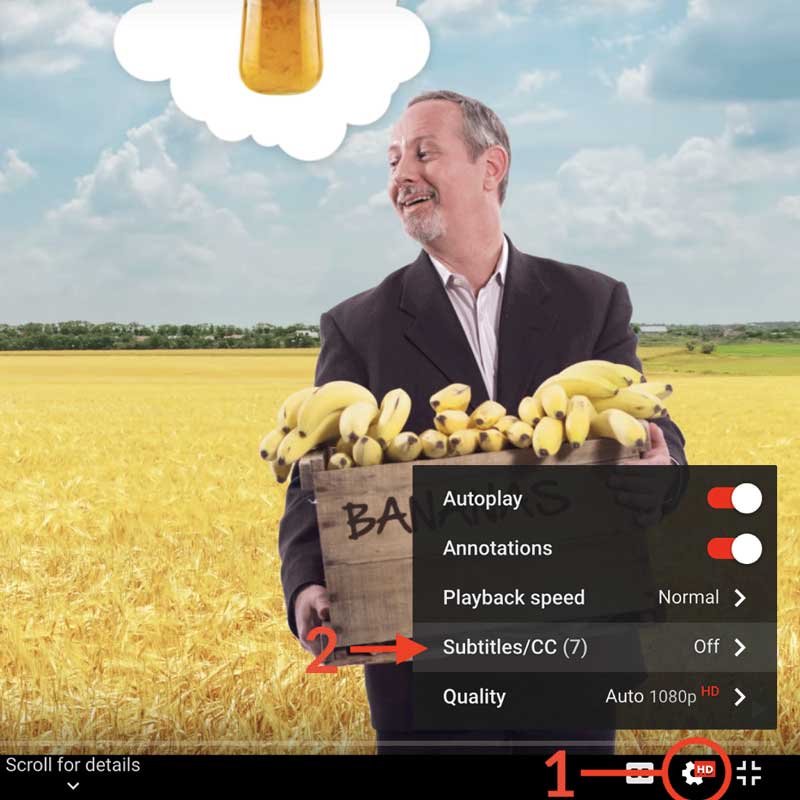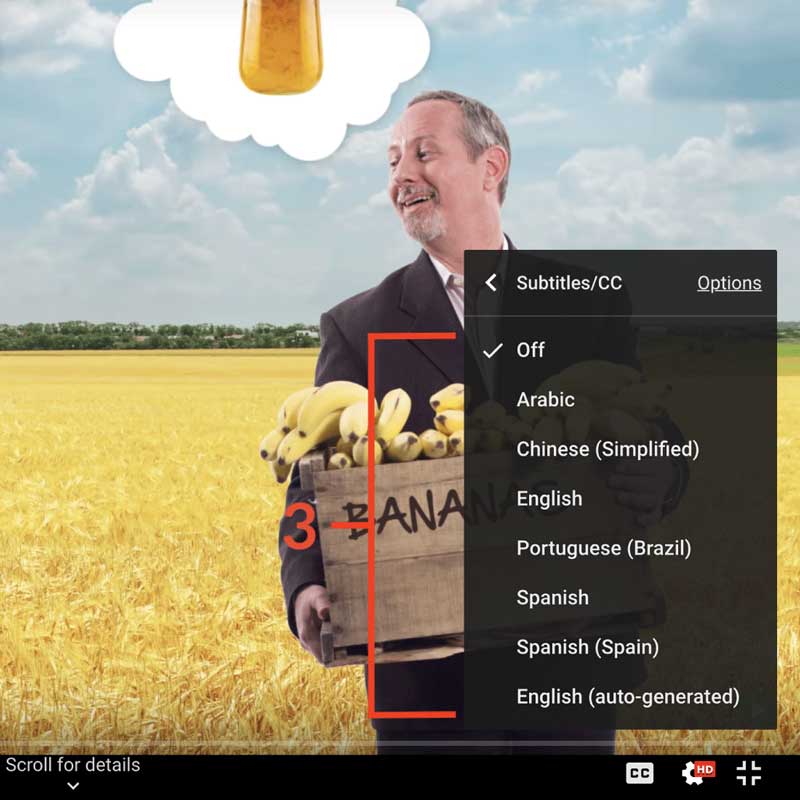Can You Beat the Market?
Course Outline
Can You Beat the Market?
On average, even professional money managers don’t beat the market. To show you why, here’s a scenario to consider:
Say we advise you to invest in companies serving the aging US population. Since the percentage of elderly will rise over the coming decades, it makes sense to invest now in products and services that the elderly might need. Sounds logical, right? Wrong.
See, the aging of the US population isn’t a secret. It’s public information. Now, say you acted on the information and did buy stock as we advised. The current price of that stock already reflects information known to the market. Thus, it’s hard to systematically outperform the market, given that everyone else tends to have the same information you do. This is also the main idea behind the efficient market hypothesis.
According to the efficient market hypothesis, the prices of traded assets already reflect all publicly available information.
With information available to buyers and sellers alike, no one has any sustainable advantage over anyone else. This is why even the pros tend not to beat the market. And that aside, even if news did pop up to change the price of an asset, it would be at random and would likely be reflected in the asset price almost immediately. So there’s no reliable way to forecast performance.
As proof of that, take the Challenger space shuttle crash of January 28, 1986. Within minutes of the crash, the news hit the Dow Jones wire service. The stock prices of the major contractors who helped build the shuttle fell immediately. Keep in mind: that was in the 80s. At today’s pace, new information can change stock prices within seconds. This is why stock tips often end up obsolete.
So to sum up—it’s hard to beat the market. You have to accept that.
Still, how should you invest? That’s what we’ll discuss in the next video.
Teacher Resources
Related to this course
See all Teacher Resources related to this course
Transcript
On average, even professional money managers don't beat the market. Why not? It's not because money managers aren't smart. I know people in this sector, and they're very smart. Rather, it's a reflection of the power of market prices to quickly reflect available information. This leads us to Investment Rule #2: "It's hard to beat the market."
First, let's consider some possible investment advice. You've probably heard that the American population is getting older -- and that's true. The number of people aged 86 and over, for instance, is projected to increase dramatically over the next several decades. To profit from this coming aging you might think, well, you should invest now in products that the elderly will want or need, such as nursing homes, pharmaceutical firms, and companies that make reading glasses.
That's good advice, right? Well, no, not actually. What I just said was useless investment advice. Why? It's useless because the aging of the U.S. population isn't a secret: it's public information. And so, the value of that information is already incorporated in stock prices. Suppose, for example, that you took this investment advice and went out and bought some shares in a firm that manages nursing homes. For every buyer, there's a seller.
Why is the seller of those shares selling? Doesn't the seller know that the American population is aging? Of course, that's known! And so, the price already reflects this public information about the aging. So, don't expect to make extra profits based on public information. In other words, if your theory of why a trade is going to be really profitable is that the person on the other side of the trade is dumb.
Well, that's usually a bad theory. Maybe you're the dumb one. This idea is the foundation of what is called the Efficient Markets Hypothesis. The prices of assets, such as stocks and bonds, reflect all publicly available information. And that means, if you're investing based on that information, you won't be able to systematically out-perform the market over time. Think about it this way: on average, buyers have just as much information as sellers, and vice versa. So that means a stock is just as likely to over-perform the market as it is to under-perform. That's why Burton Malkiel called his book, A Random Walk Down Wall Street.
In fact, the mathematical models used by economists to understand the motion of stocks and stock returns are the same models developed by Einstein to explain Brownian motion: the jittery random movement of small dust particles as they're bumped into and buffeted about by atoms and molecules. Stock returns are hard to forecast because old information is already incorporated in stock prices, and new information is by definition unexpected, or random.
What if you've got a hot stock tip? Can you then beat the market? It's still highly doubtful. New information comes to be reflected very quickly in prices. Here's an example: At 11:39 Eastern Standard Time on January 28th, 1986, the space shuttle Challenger exploded in a great tragedy, killing everyone on board. Eight minutes later, that news hit the Dow Jones wire service. Things were slower back then before instant messaging. The stock prices of all the major contractors who had helped to build the shuttle, such as Morton Thiokol, Lockheed, Martin Marietta, and Rockwell International, all fell immediately. Now here's what's really interesting. Six months after the disaster, a commission was set up to investigate the cause, which turned out to be the failed O-rings made by Morton Thiokol.
Now let's return to the day of the crash. On that day, Lockheed, Martin Marietta, and Rockwell International all fell by 2-3%, but the stock of Morton Thiokol fell by over 11%. The market had correctly figured out that Morton Thiokol was the most likely cause of the disaster, and within hours that information was reflected in market prices, even though a formal investigation had not yet begun. In essence, the people with the best knowledge about the likely causes of the crash could either trade themselves, or tell other people how to trade. And so, some investors started selling, and the price of the Morton Thiokol shares started falling, and that new and lower price was reflecting the new and lower value for the company. Now that was back in 1985. Nowadays, new information starts to change markets, not in hours or minutes, but in seconds or milliseconds -- literally faster than the blink of an eye.
Okay, now one important point before we conclude. Stock prices aren't pure random walks, but rather random walks with a positive upward drift. It's how well you do relative to the average market return, which is hard to predict. On average, investors can expect to make money over time, and in this sense, some broader general predictability is present. Okay, so Investment Rule #2 says you shouldn't expect to beat the market.
So how should you invest? That's the issue we take up next.
Subtitles
- English
- Spanish
- Chinese
- Hindi
- French
- Arabic
Thanks to our awesome community of subtitle contributors, individual videos in this course might have additional languages. More info below on how to see which languages are available (and how to contribute more!).
How to turn on captions and select a language:
- Click the settings icon (⚙) at the bottom of the video screen.
- Click Subtitles/CC.
- Select a language.


Contribute Translations!
Join the team and help us provide world-class economics education to everyone, everywhere for free! You can also reach out to us at [email protected] for more info.
Submit subtitles
Accessibility
We aim to make our content accessible to users around the world with varying needs and circumstances.
Currently we provide:
- A website built to the W3C Web Accessibility standards
- Subtitles and transcripts for our most popular content
- Video files for download
Are we missing something? Please let us know at [email protected]
Creative Commons

This work is licensed under a Creative Commons Attribution-NoDerivatives 4.0 International License.
The third party material as seen in this video is subject to third party copyright and is used here pursuant
to the fair use doctrine as stipulated in Section 107 of the Copyright Act. We grant no rights and make no
warranties with regard to the third party material depicted in the video and your use of this video may
require additional clearances and licenses. We advise consulting with clearance counsel before relying
on the fair use doctrine.


